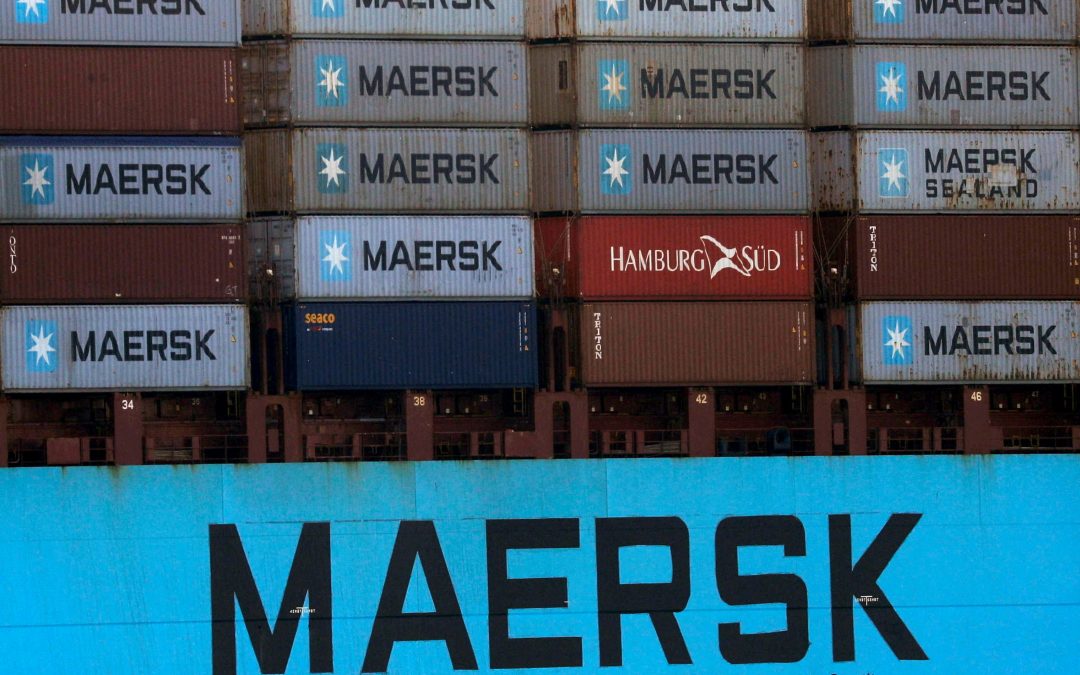After seeking to challenge a finding by the U.S. Labor Department’s Occupational Safety and Health Administration, the U.S. division, Maersk Line, Limited, has agreed to change its safety reporting policies and compensate a terminated seafarer for lost wages and damages. The settlement with the U.S. Labor Department stems from a 2020 incident where the Maersk division terminated the chief mate on one of its vessels for reporting safety concerns directly to the U.S. Coast Guard.
During a three-day hearing in June 2024, Maersk Line, Limited challenged the findings of OSHA which in 2023 ruled the company had illegally suspended and terminated the unnamed officer who was working aboard the containership Safmarine Mafadi (now the Maersk Tennessee). Built in 2007, the 61,433 DWT vessel transferred to the U.S. registry in 2019 and was renamed for Maersk in 2022.
Maersk Line, Limited, started in 1983, operates around the world to support the United States with military, government, and humanitarian missions. It participates in the Maritime Security Program (MSP) and Voluntary Intermodal Sealift Agreement (VISA) to support the U.S. government with a fleet of approximately 20 ships. The seafarer was a merchant mariner and not in the U.S. military.
According to the court documents, the chief mate said he disagreed with the captain of the containership. The chief mate then filed a report with the U.S. Coast Guard alleging safety concerns aboard the vessel. OSHA says they included concerns that lifeboat equipment was in need of repair and replacement, crew members onboard were possibly in possession of or consuming alcohol, improper supervision of cadet seamen, and a bilge system not preventing cargo holds from flooding.
The complaint prompted a USCG inspection that found violations. After the USCG departed the vessel, the chief mate was immediately suspended and three months later terminated. MLL cited policies that required the mate to have first reported concerns to the Ship Superintendent, Fleet Group, and the Marine Standards team and not doing so was “in violation of written company policy.”
OSHA ruled that Maersk Line, Limited’s policy and its decision to fire the chief mate violated the U.S. Seaman’s Protection Act which ensures the right to contact USCG regardless of company policy. OSHA ordered MLL to reinstate the officer who had a strong track record and positive job performance before the incident. They ordered him to be paid more than $450,000 in back wages with interest and $250,000 in punitive damages, but MLL filed an appeal.
“This case is an important affirmation that all mariners have the option to contact the U.S. Coast Guard directly for addressing a safety concern,” said Rear Admiral and Assistant Commandant for Prevention Policy for the U.S. Coast Guard Wayne Arguin. “Safety requires a team approach. The size, complexity, and importance of the marine transportation system demand that everyone work together to prevent casualties and minimize supply chain disruptions.”
After the hearing, MLL agreed to a settlement that calls for the company to change its safety reporting policies to remove any requirement that workers first notify the company of their concerns. Further, the company agrees to refrain from retaliation and provide training to supervisors on the revised policy.
Lawyers for the Department of Labor said the seafarer “showed the kind of bravery for which marines have long been known.” Further, they said while coping with the ocean’s natural hazards, seafarers should never fear reporting concerns about their vessel’s safety.
As part of the settlement, the former chief mate accepts the payment as sufficient consideration. The court orders the company to expunge information about the termination from the employment file and directs that a neutral employment reference be provided if requested. There is no mention of the previously directed rehiring and Maersk Line, Limited did not admit to violations of the Seaman’s Protection Act.
MLL had previously argued that the ISM Code requires crewmembers to report issues up the chain of command. It further asserted that the mate had made the report in bad faith while noting that the Coast Guard had cleared the ship to sail after the inspection.
Source: The Maritime Executive





